Intercontinental Cup and Club World Cup winners
The Club World Cup has been expanded in a new format for 2025. Here, a look at the previous winners of the competition and its predecessor, the Intercontinental Cup...
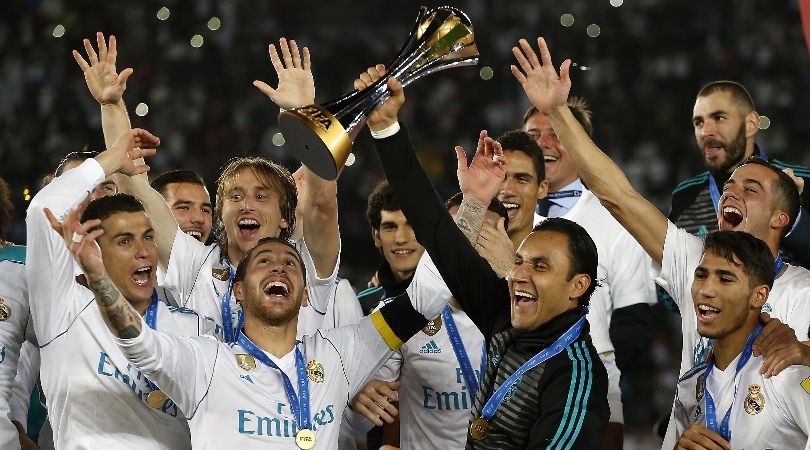
The Club World Cup is a competition which often only really seems to interest the teams playing in it.
Perhaps that is why FIFA decided to expand the tournament, turning it into a 32-team affair for 2025.
Originally, winners of the European Cup and South America's Copa Libertadores met over two legs in a series known as the Intercontinental Cup.
That kicked off in 1960 and continued until 2004, replaced by the Club World Cup the following year. Here, a look at some of the biggest winners in the two competitions...
Chelsea (2021)
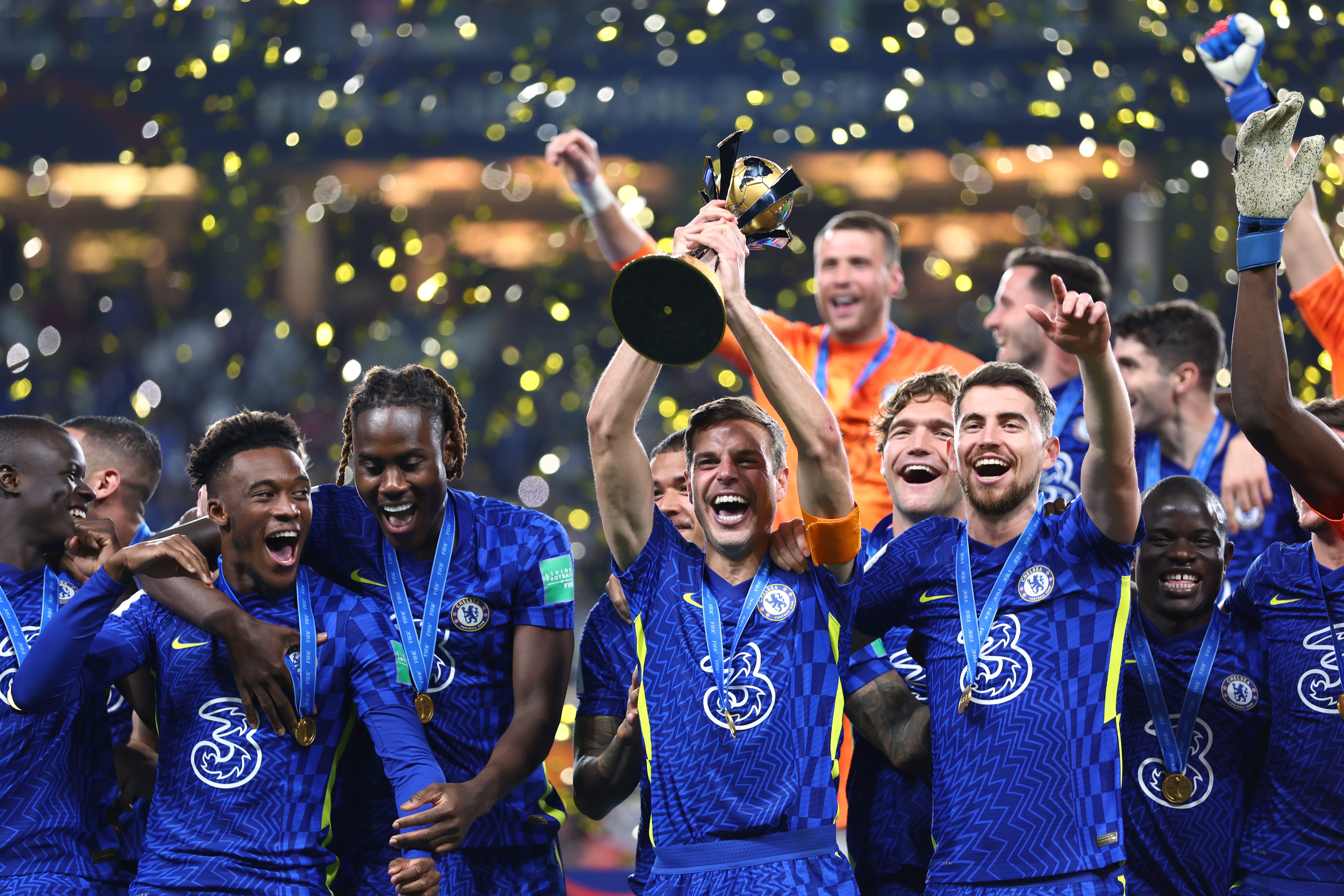
After losing 1-0 to Corinthians in the 2012 Club World Cup final, Chelsea went one better in 2021.
The Blues beat Brazilian side Palmeiras 2-1 after extra time, edging out the São Paulo side late on thanks to a Kai Havertz penalty in the 117th minute in Abu Dhabi.
Internacional (2006)
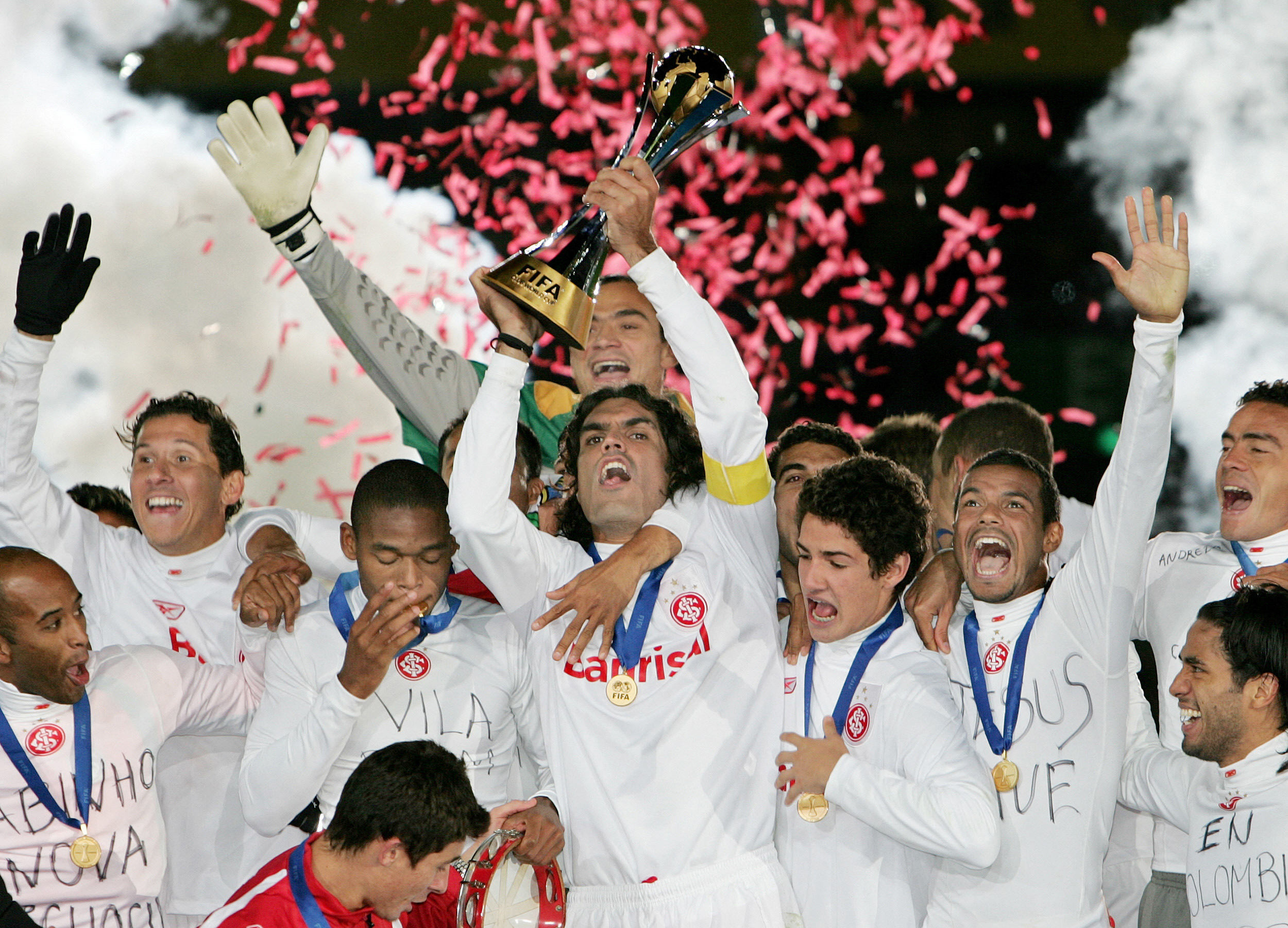
With a starting line-up featuring 11 Brazilian players, Internacional stunned Barcelona with a 1-0 win over the Catalan club in the final of the 2006 FIFA Club World Cup.
Get FourFourTwo Newsletter
The best features, fun and footballing quizzes, straight to your inbox every week.
Adriano Gabiru's late goal saw the trophy head back to Porto Alegre and Barcelona – with the likes of Ronaldinho, Andrés Iniesta and Carles Puyol in the XI that day – would have to wait another five years to win the competition.
Manchester City (2023)
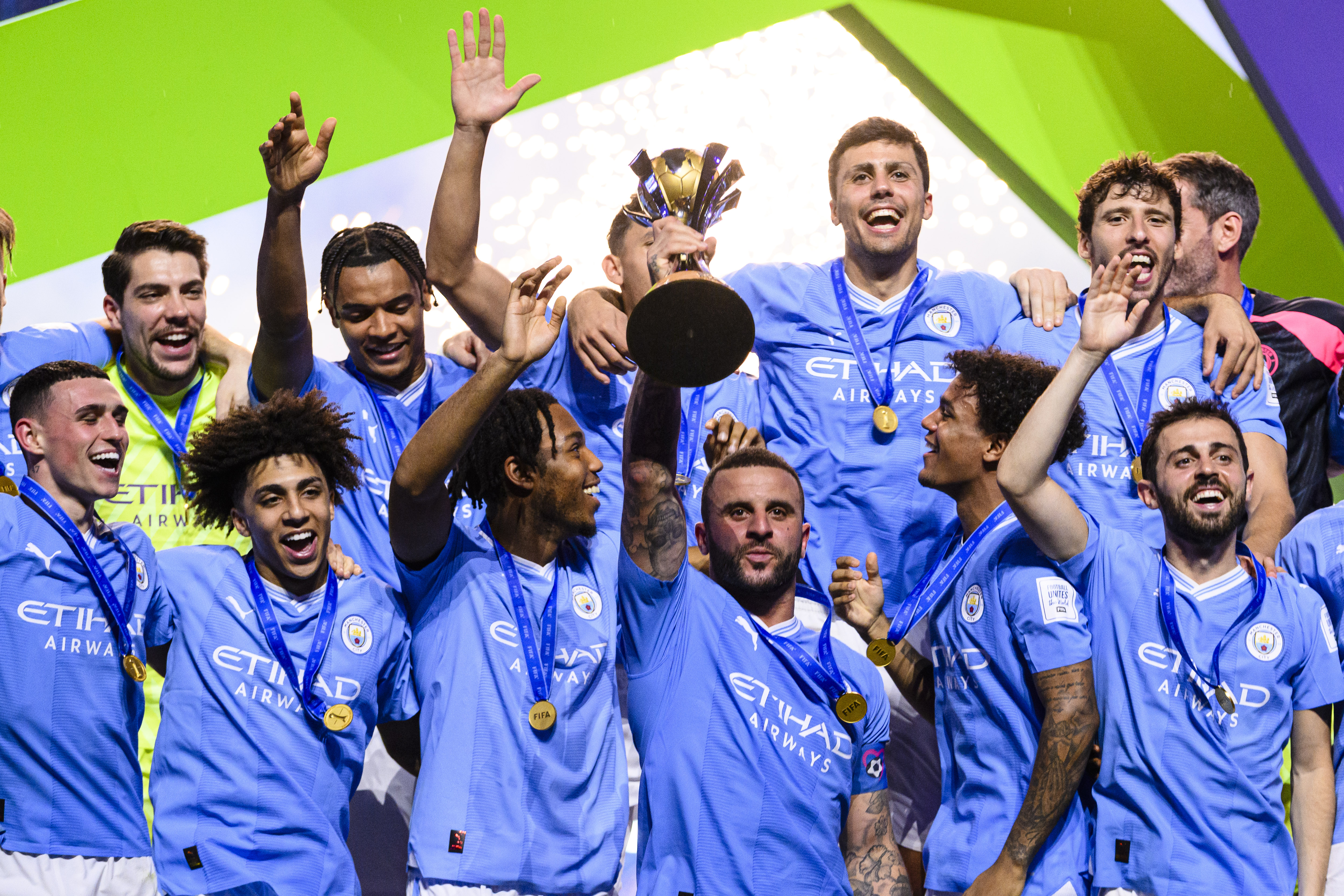
Manchester City followed up their treble triumph in 2023 by adding the FIFA Club World Cup later in the year.
Pep Guardiola's side saw off Fluminense 4-0 in a one-sided final, with Julián Álvarez scoring twice, along with a goal from Phil Foden and a Nino own goal in Jeddah.
River Plate (1986)
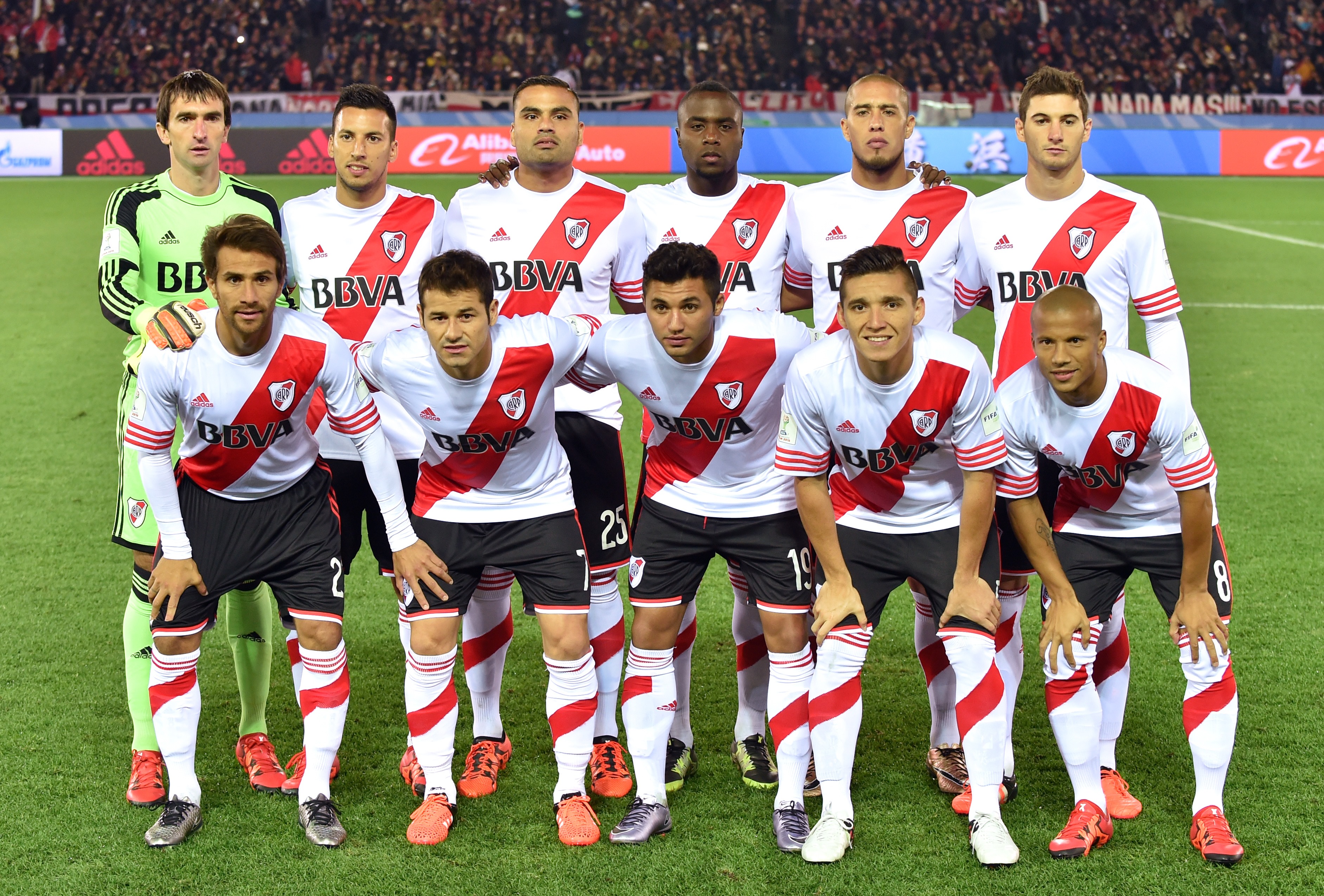
River Plate's first Copa Libertadores win came in 1986 and later that year, the Millionarios also lifted the Intercontinental Cup.
The Buenos Aires giants beat Steaua Bucharest 1-0 in Tokyo to claim the trophy. A decade later, River lost to Juventus by the same scoreline and in 2015, Marcelo Gallardo's side were beaten 3-0 by Barcelona in the final of the FIFA Club World Cup.
Liverpool (2019)
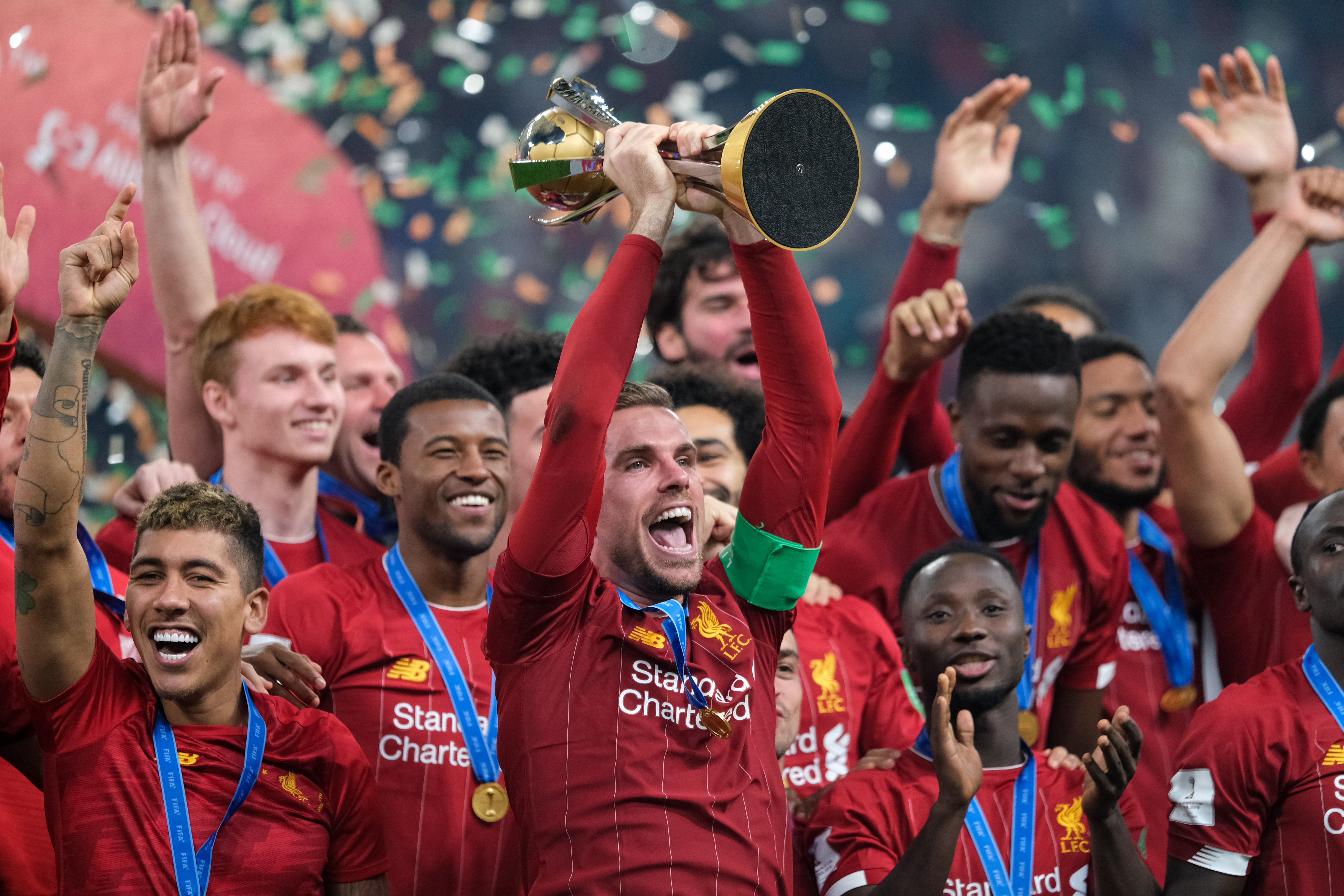
Despite their pedigree in the European Cup and the Champions League, Liverpool never won the Intercontinental Cup and the Reds had to wait until 2019 for their first success in the FIFA Club World Cup.
That came in 2019, when Roberto Firmino's extra-time goal sealed a 1-0 win over Flamengo. Liverpool had previously lost 1-0 to São Paulo in the 2005 final, with Intercontinental Cup defeats against Flamengo in 1981 and Independiente in 1984. No match was played in 1978.
Juventus (1985, 1996)
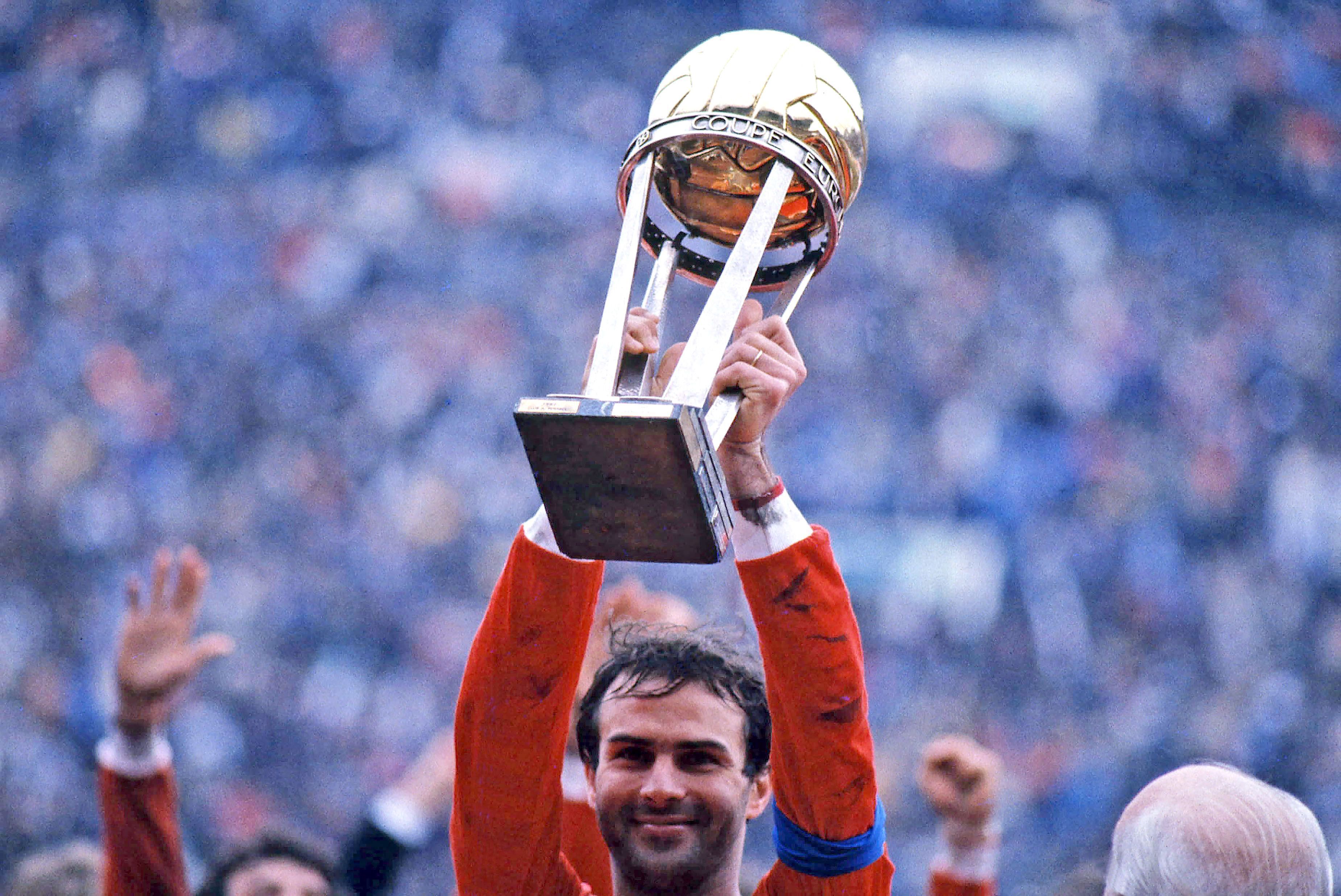
Juventus' first European Cup came in 1985, when the Bianconeri edged out Liverpool in a final marred by fan violence as 39 fans lost their lives in Brussels.
The Turin giants followed that up with victory in the Intercontinental Cup over Argentinos Juniors on penalties after a 2-2 draw in Tokyo. And after claiming the Champions League in 1996, Juve beat River Plate 1-0 with a goal from Alessandro Del Piero to win the series for a second time.
Santos (1962, 1963)
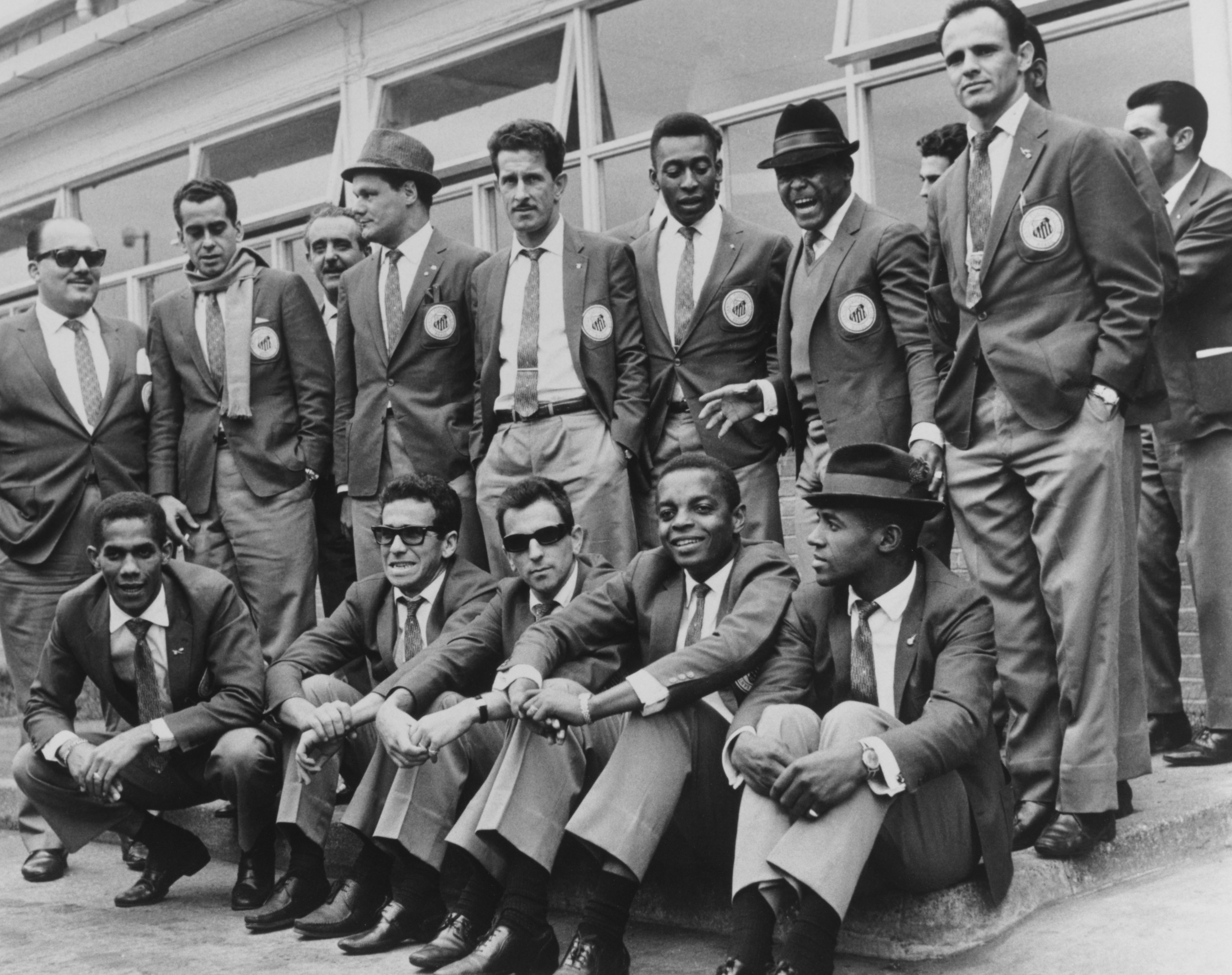
Inspired by the legendary Pelé, Santos won Copa Libertadores titles in both 1962 and 1963 and the Brazilian club went on to add Intercontinental crowns in each of those years.
Santos beat Benfica home and away to win the 1962 edition, but needed a play-off to defeat AC Milan the following year after both matches had finished 4-2 to the home team. Libertadores winners again in 2011 with Neymar in their ranks, Santos finished runners-up to Barcelona in the FIFA Club World Cup that year.
Ajax (1972, 1995)
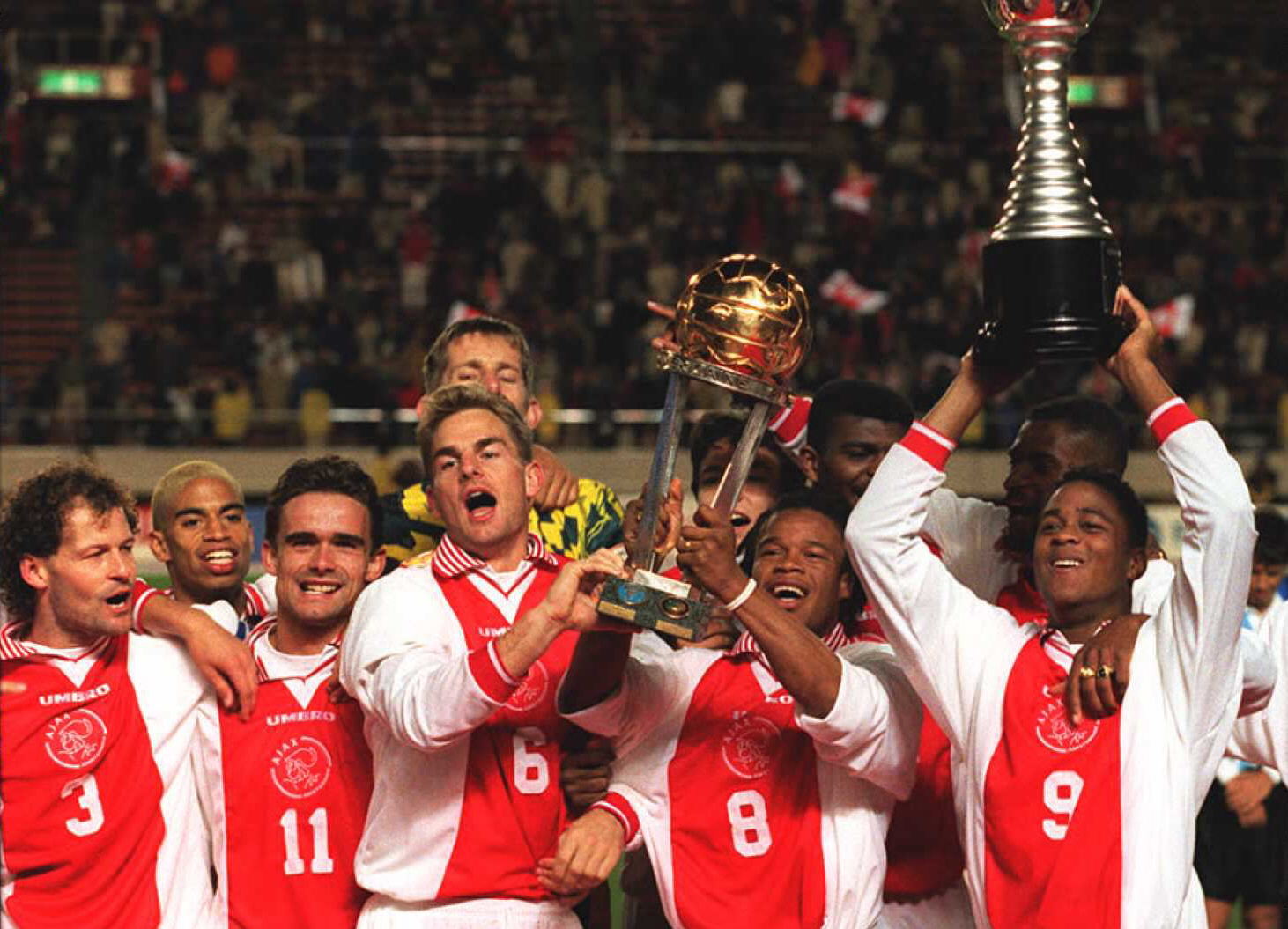
Ajax won the European Cup three years in a row in the early 1970s, but the Amsterdam club declined to take part in the Intercontinental Cup in 1971 and 1973, citing the costs of travelling to South America.
In 1972, Ajax did take part and the Dutch giants beat Argentine side Independiente 4-1 over two legs. Champions League winners in 1995, Louis van Gaal's side beat Grêmio on penalties in the Intercontinental Cup clash later that year after a 0-0 draw in Tokyo.
Porto (1987, 2004)
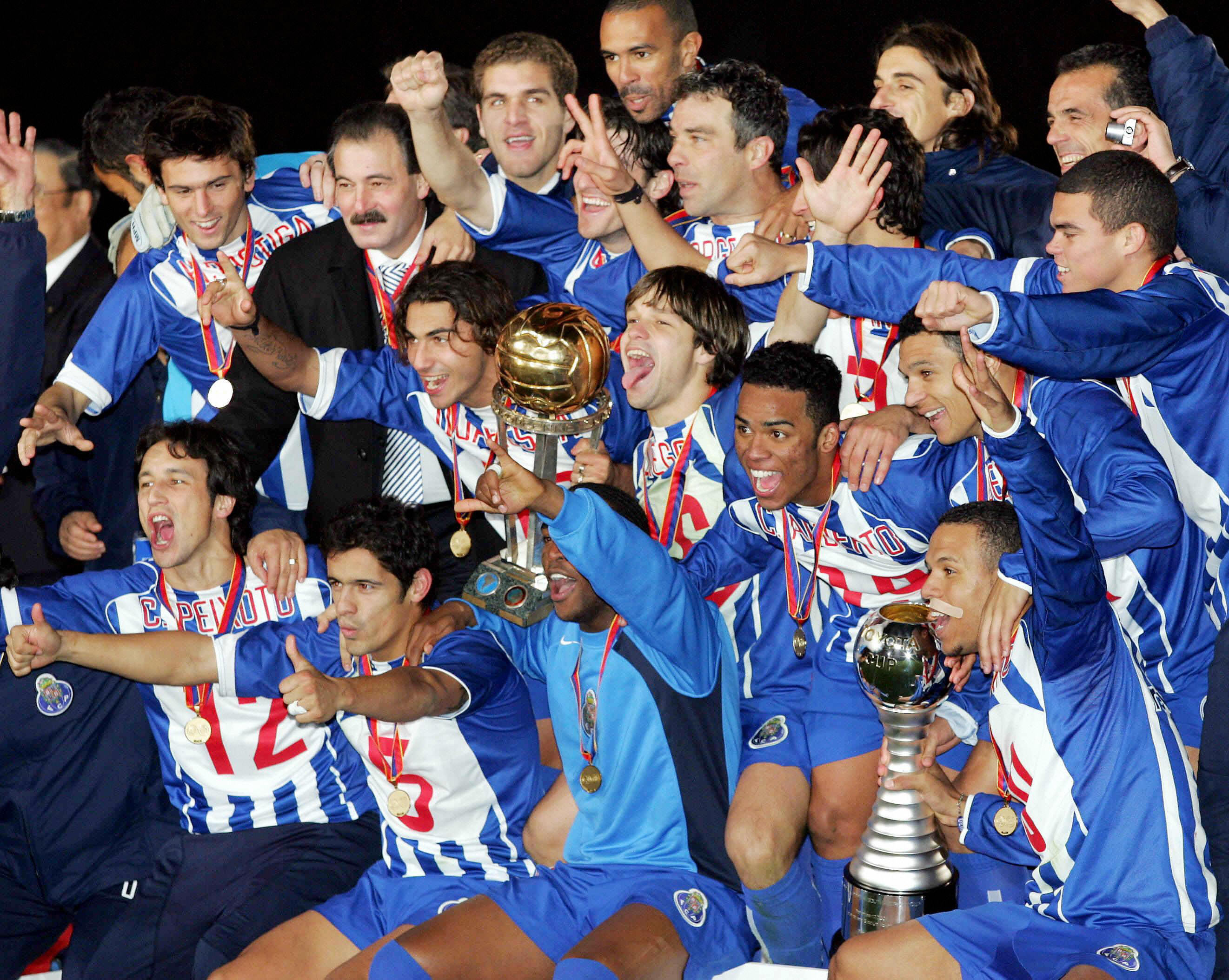
European Cup winners in 1987, Porto won the trophy again as the Champions League in 2004 and the Dragons went on to claim the Intercontinental Cup both times.
Porto beat Uruguayan side Peñarol 2-1 after extra time in 1987 and defeated Colombian outfit Once Caldas on penalties following a 0-0 draw in the last-ever Intercontinental match in 2004.
Corinthians (2000, 2012)
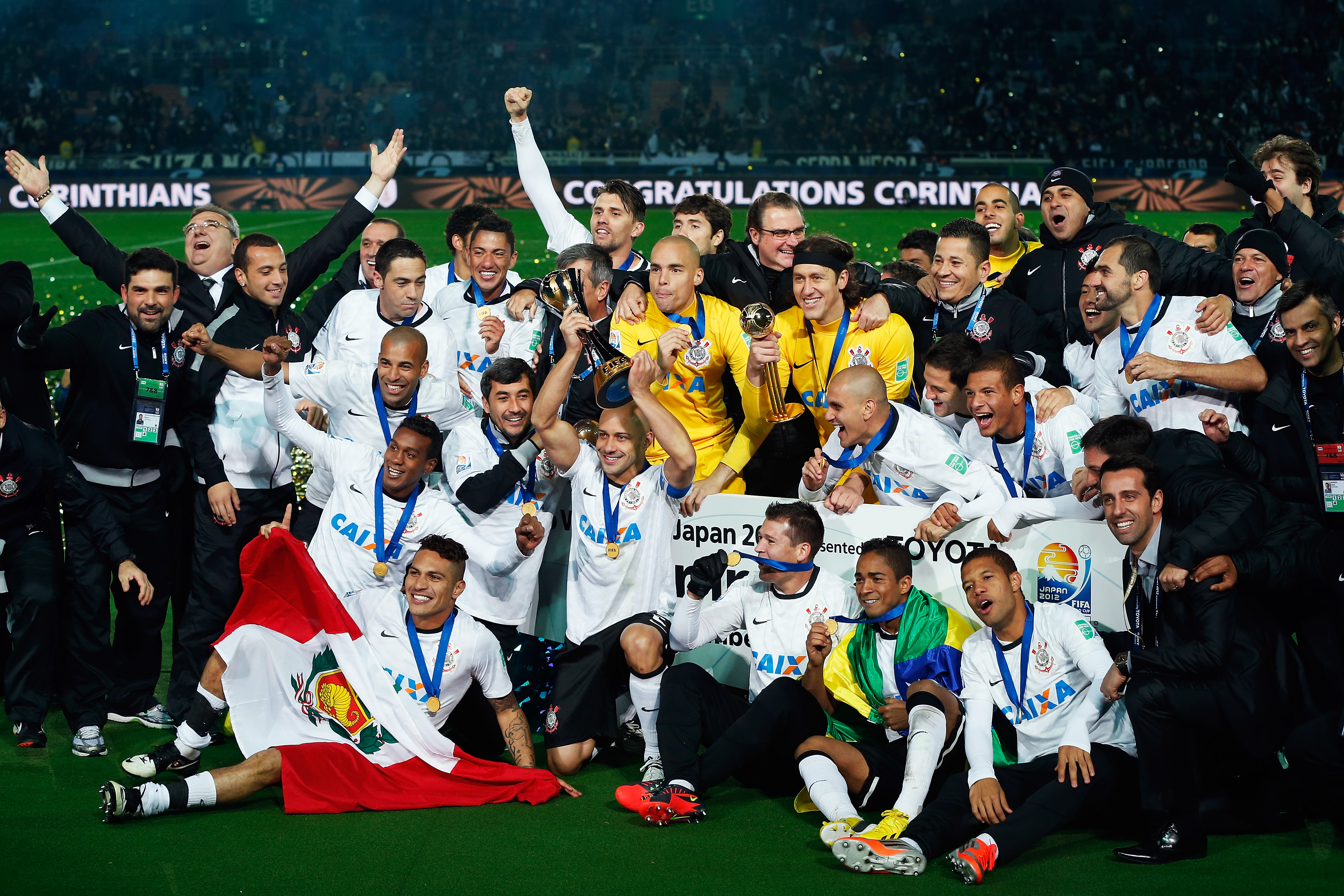
The first FIFA Club World Cup was played in Brazil in 2000 and that tournament was won by Corinthians, with the São Paulo side edging out Vasco da Gama on penalties after a 0-0 draw at the Maracanã.
Eventually, the Club World Cup replaced the Intercontinental Cup in 2005 and Corinthians won the competition again in 2012, courtesy of a Paolo Guerrero goal against Chelsea in Yokohama.
Manchester United (1999, 2008)
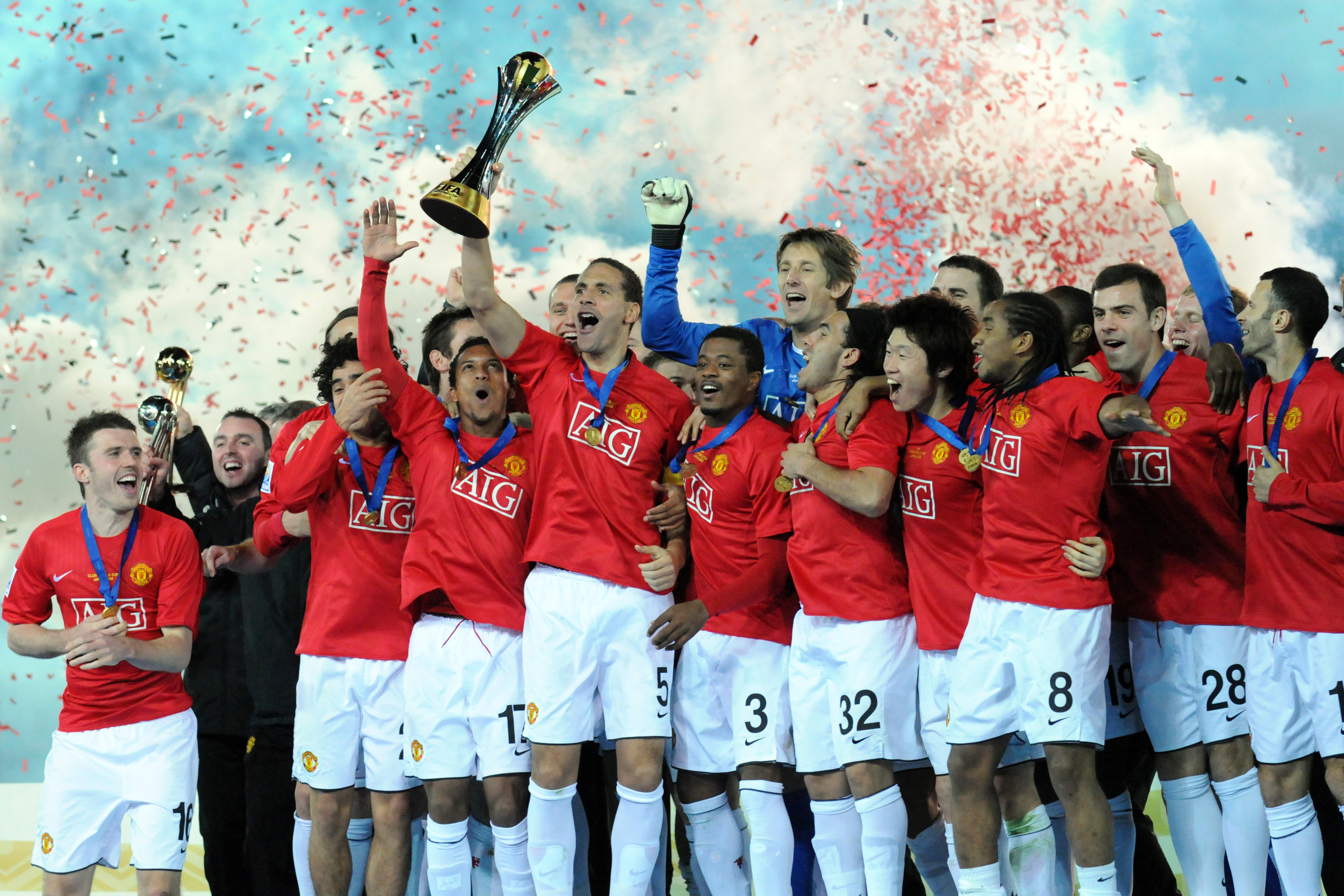
Beaten 2-1 on aggregate by Estudiantes in the 1968 Intercontinental Cup, Manchester United had to wait over 30 years for another shot at the trophy.
United finally won it in 1999, following up their treble triumph with a 1-0 victory over Palmeiras, with Roy Keane scoring the goal. Sir Alex Ferguson's side went on to add the Club World Cup in 2008, with Wayne Rooney on target this time in a 1-0 win over LDU Quito in Japan.
Independiente (1973, 1984)
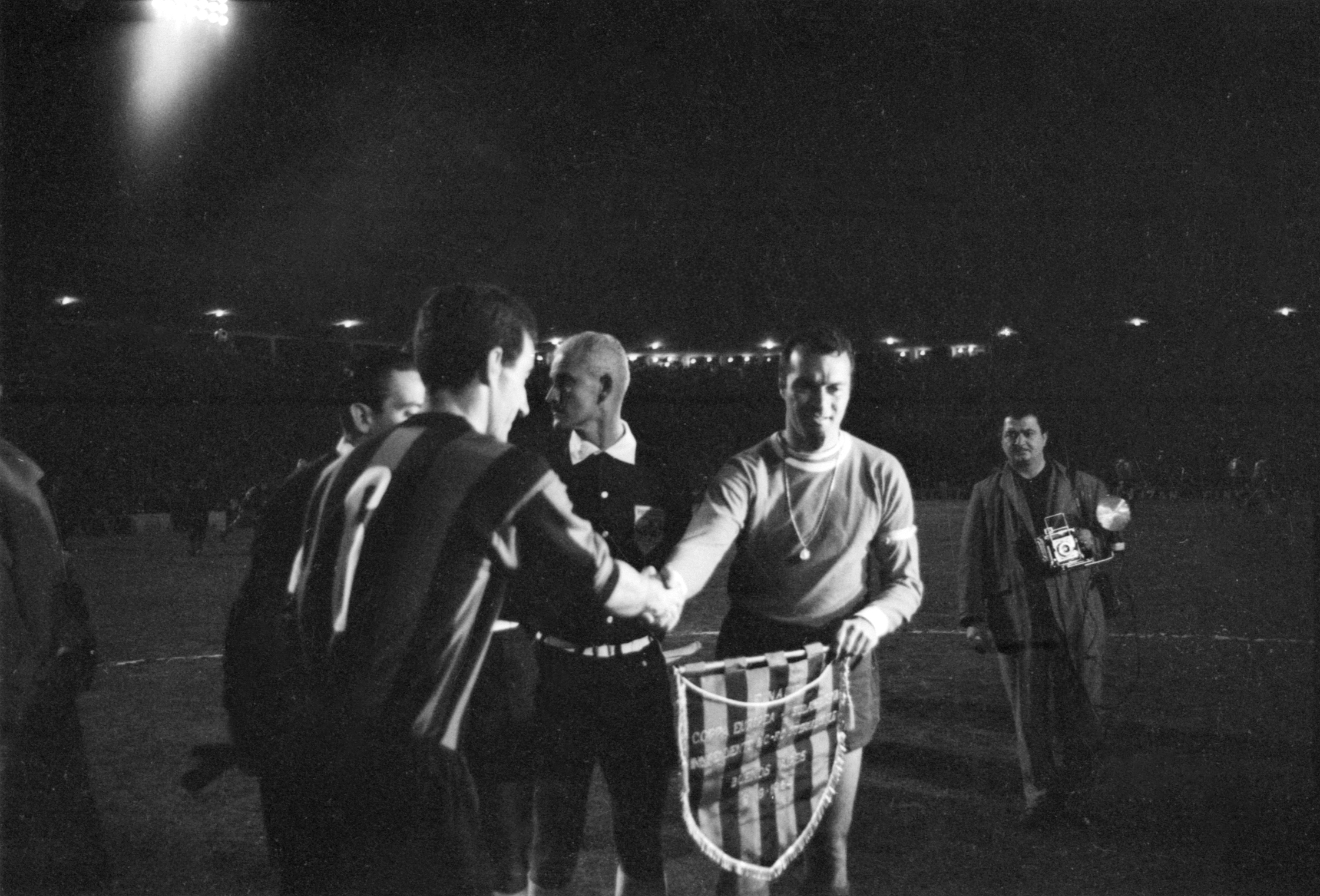
One of Argentina's most successful sides in the 1960s, 1970s and 1980s, Independiente won seven Copa Libertadores titles between 1964 and 1984.
Nicknamed Rey de Copas ("King of Cups"), Independiente also won the Intercontinental Cup in 1973 and 1984, finishing as runners-up in 1964, 1965, 1972 and 1974.
Barcelona (2009, 2011, 2015)
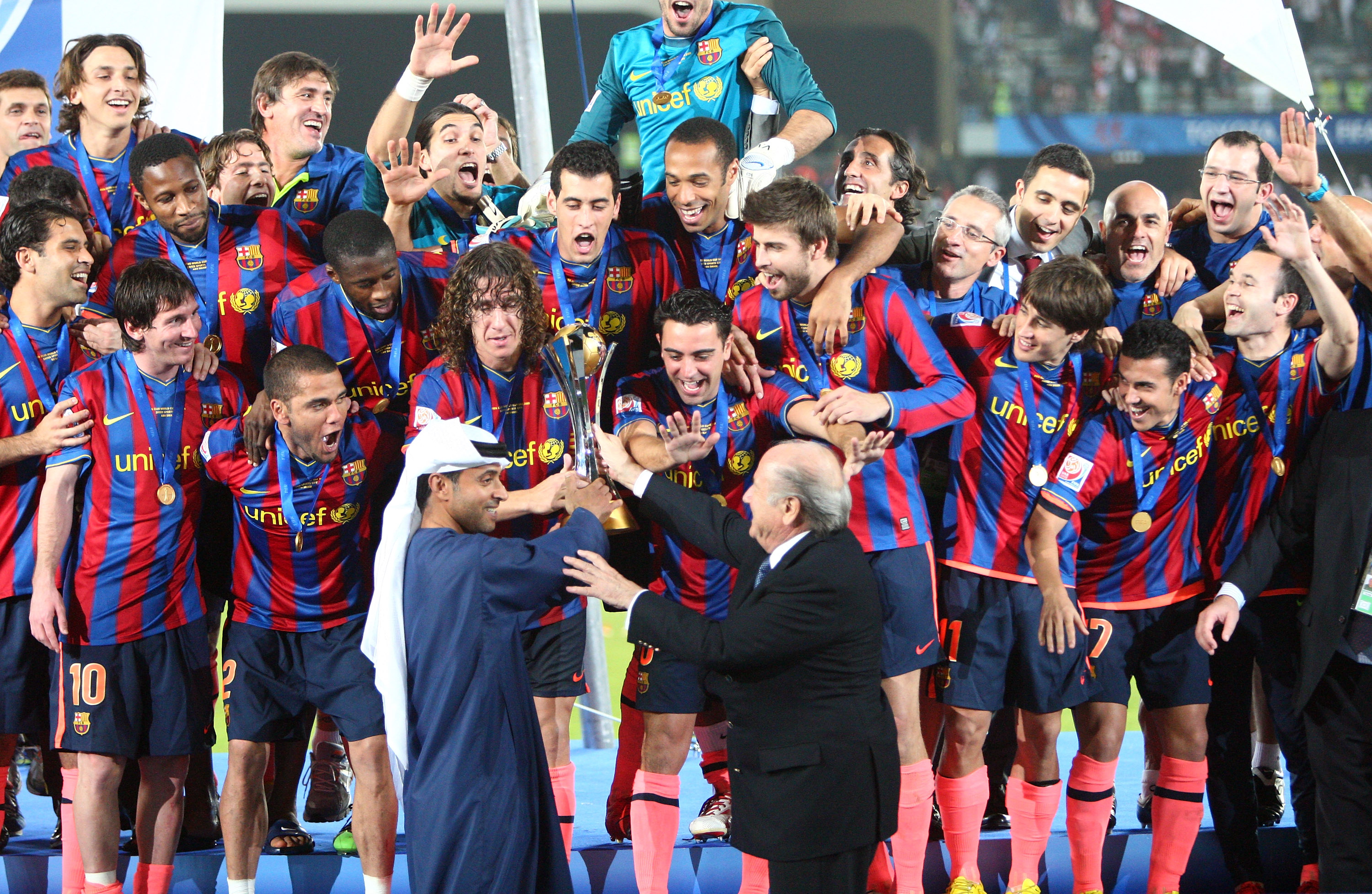
Barcelona never won the old Intercontinental Cup, but the Blaugrana have won the FIFA Club World Cup three times.
The first of those victories came in 2009, when Barça beat Estudiantes to complete a clean sweep of six titles out of six under Pep Guardiola. Barcelona thrashed a Santos side featuring Neymar 4-0 in the 2011 edition, before defeating River Plate 3-0 in 2015.
Inter (1964, 1965, 2010)
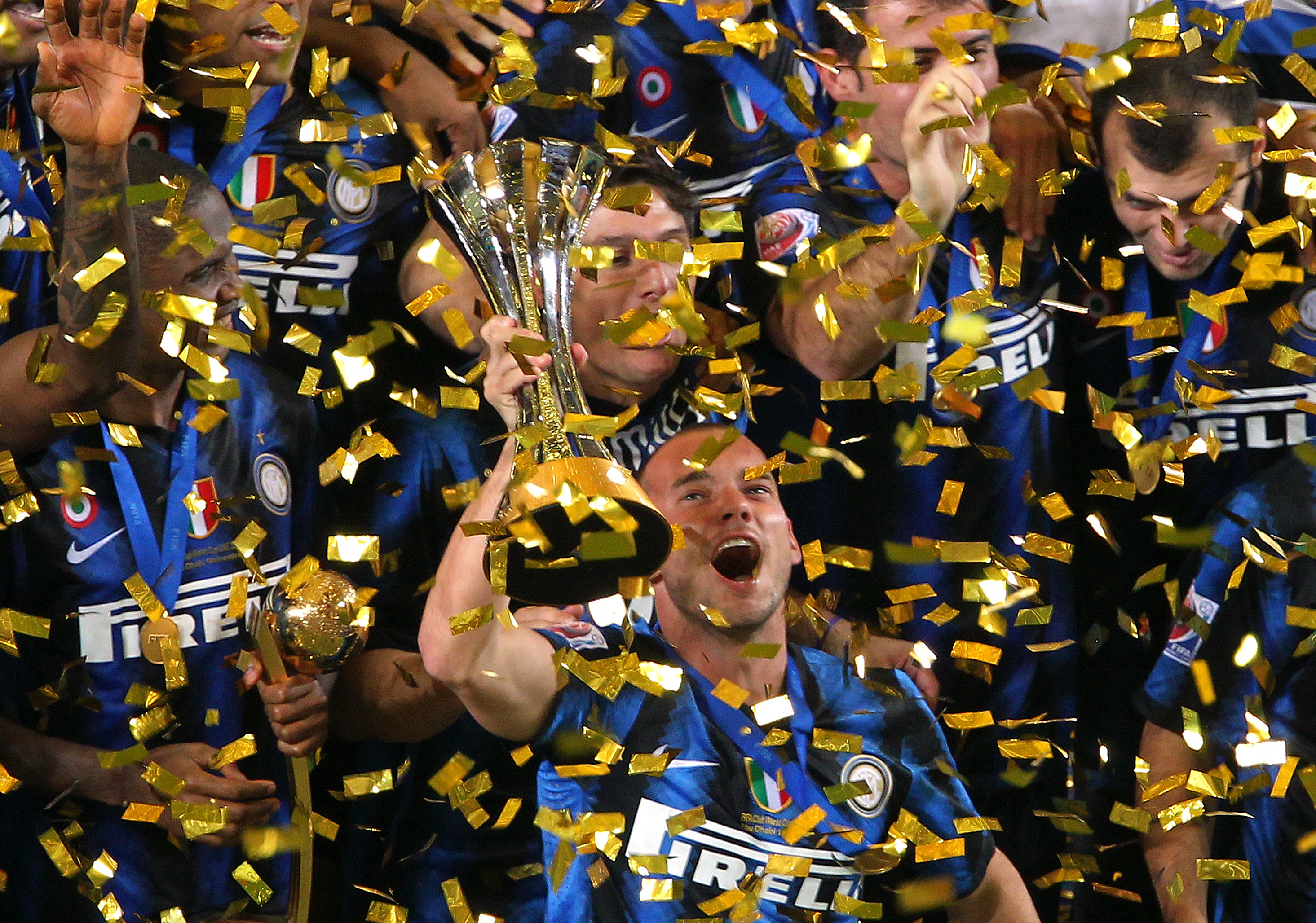
European Cup winners in 1964 and 1965, Inter went on to add the Intercontinental Cup to their trophy cabinet later in each year, beating Argentine side Independiente both times.
And after claiming the treble in 2010, the Nerazzurri ended the year as FIFA Club World Cup winners, thrashing Congolese club TP Mazembe 3-0 in the final in Abu Dhabi.
São Paulo (1992, 1993, 2005)
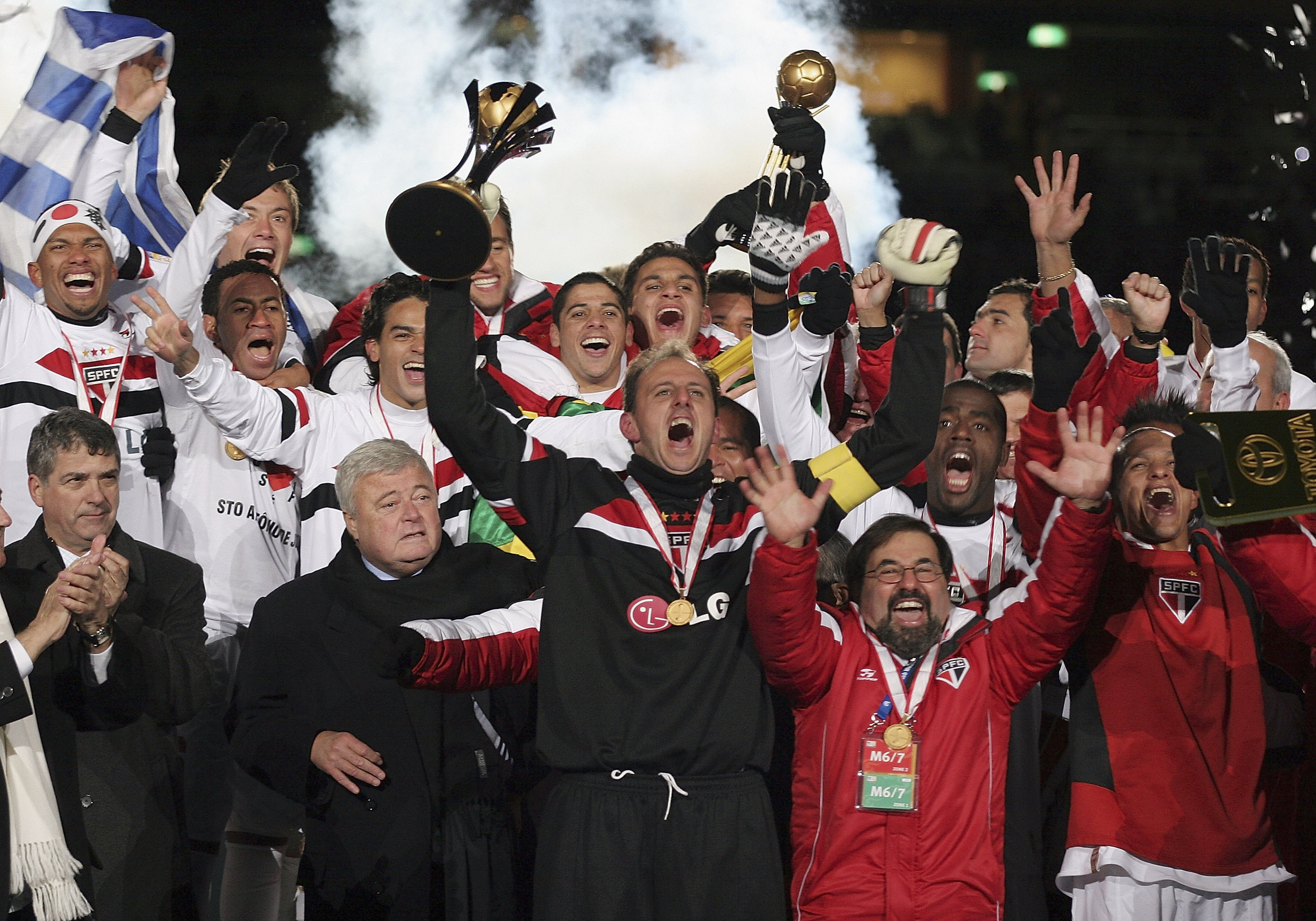
Copa Libertadores winners in 1992 and 1993, São Paulo went on to claim the Intercontinental Cup in both of those years, beating Johan Cruyff's Barcelona 2-1 in the 1992 edition and edging out Fabio Capello's AC Milan 3-2 the following year.
And in 1995, a goal from Mineiro saw São Paulo defeat Liverpool 1-0 in Yokohama to win the FIFA Club World Cup. That triumph made the Tricolor Brazil's most successful side in international competitions.
Nacional (1971, 1980, 1988)
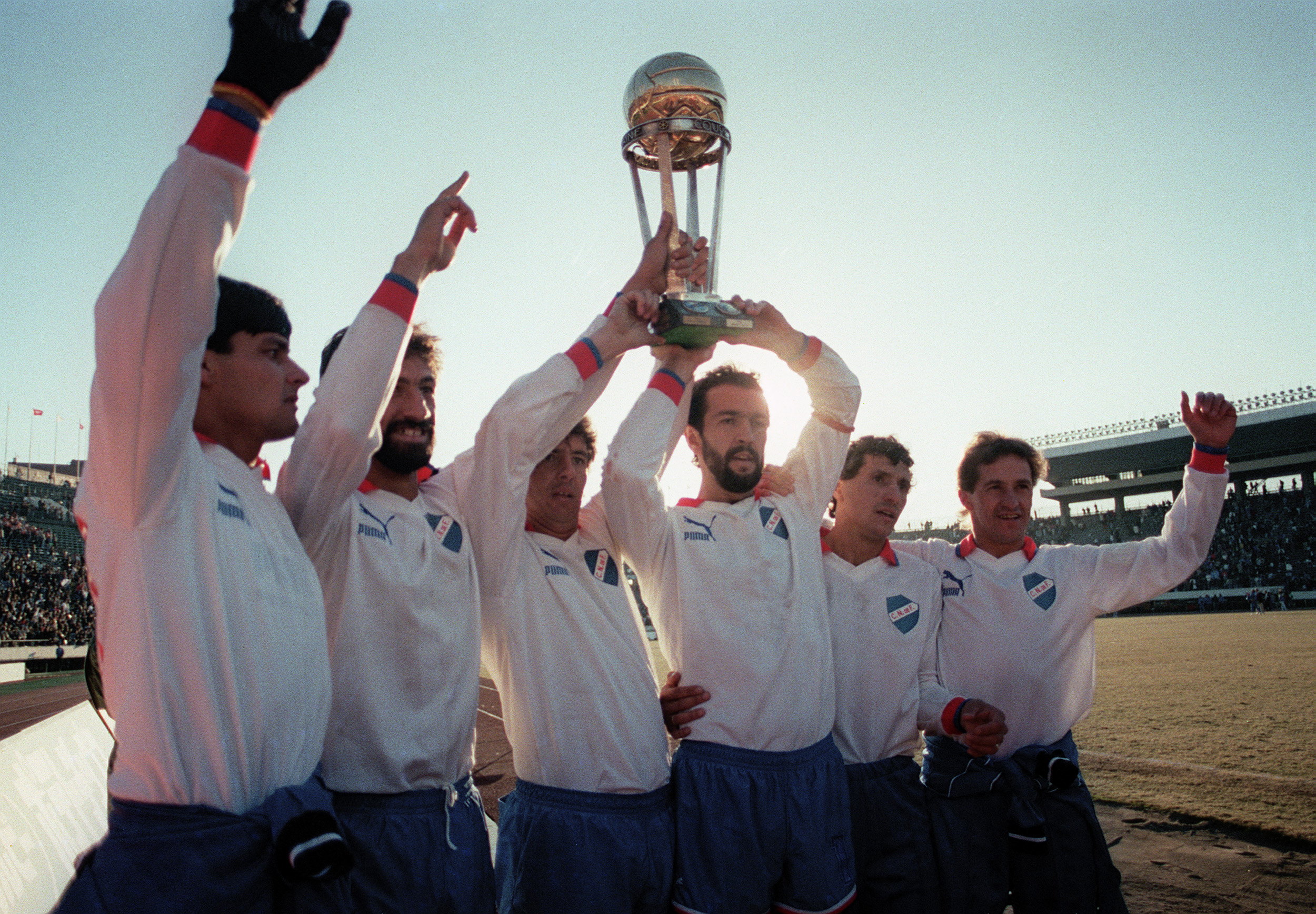
One of five teams to have won the Intercontinental Cup on three occasions, Nacional took the trophy in each of their three appearances.
The Montevideo giants edged out Panathinaikos 3-2 over two legs in 1971, before beating Nottingham Forest 1-0 in the first one-off match in 1980 and defeating PSV on penalties after a 2-2 draw in 1988.
Boca Juniors (1977, 2000, 2003)
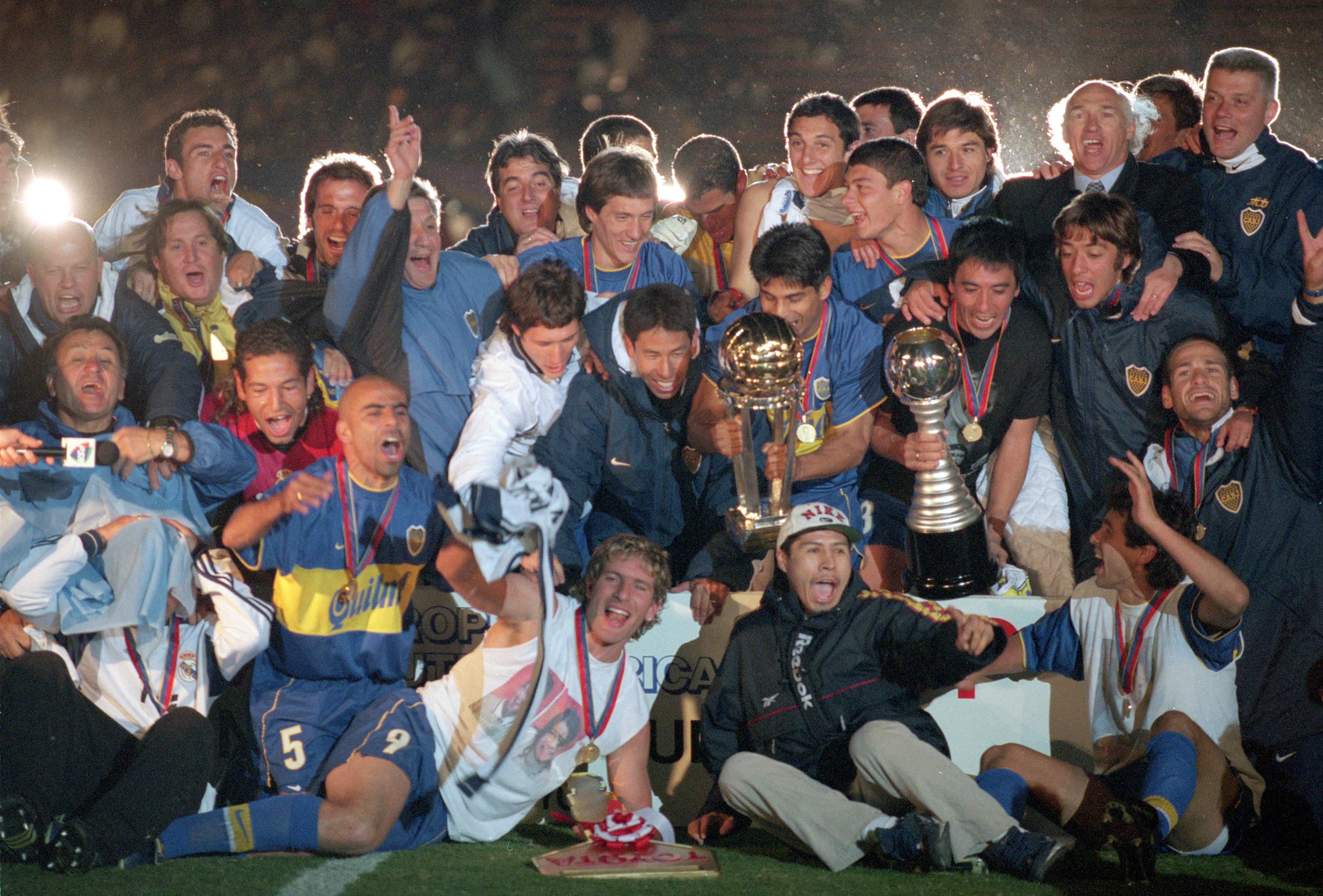
Boca Juniors first won the Intercontinental Cup in 1977, beating Bundesliga side Borussia Mönchengladbach 3-0 in Germany after a 2-2 draw in the first leg at the Bombonera.
The Buenos Aires giants went on to win the Intercontinental Cup again in 2000 and 2003, memorably beating Real Madrid 2-1 in the first of those triumphs. Boca's win in 2003 came against AC Milan on penalties, but the Xeneize lost the 2007 Club World Cup final 4-2 to the Rossoneri.
Peñarol (1961, 1966, 1982)
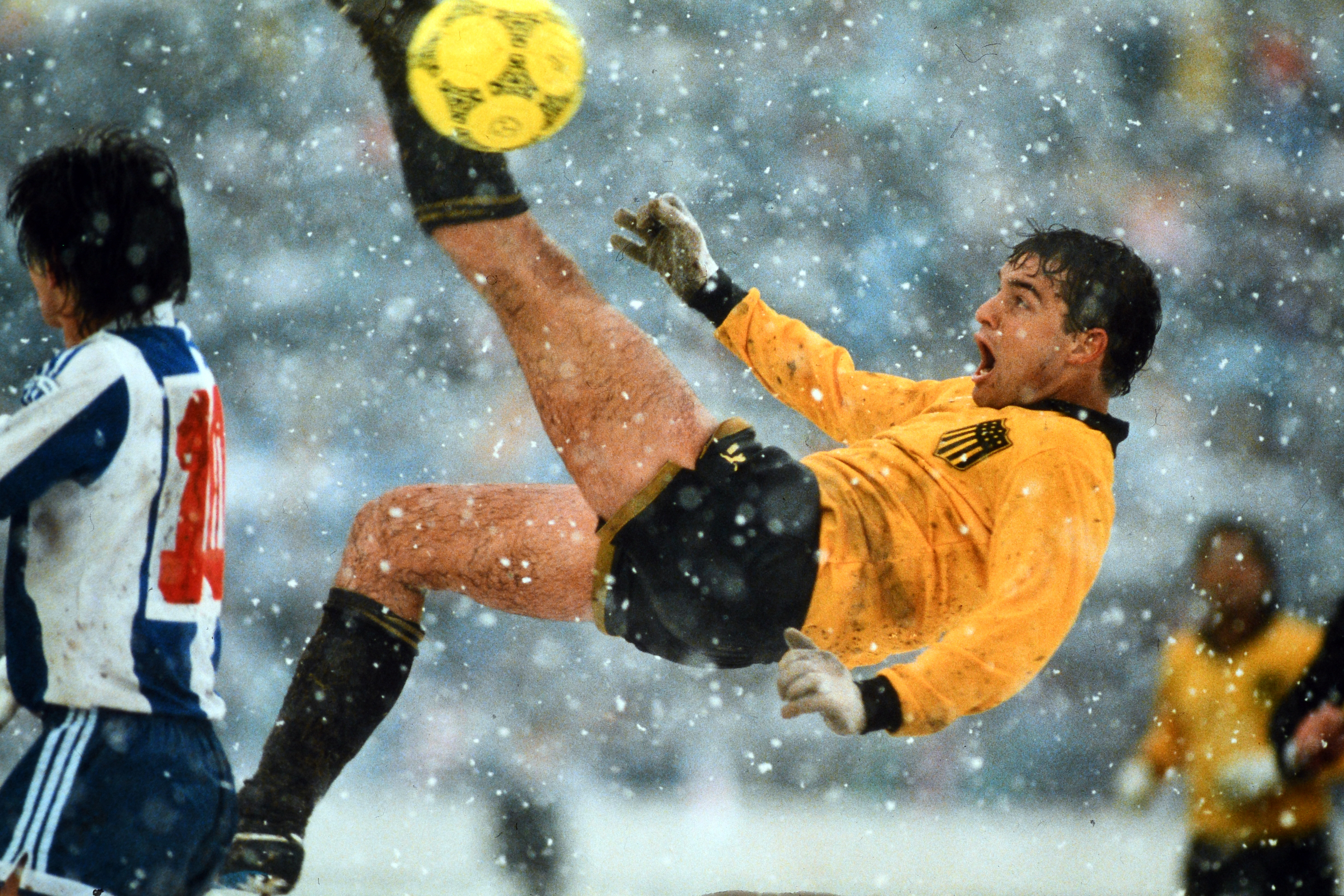
Beaten by Real Madrid in the first-ever edition of the Intercontinental Cup, Peñarol took the trophy the following year with a 6-0 aggregate win over Benfica in 1961.
The Montevideo giants defeated Madrid 2-0 home and away in the 1966 edition, before a 2-0 victory in a one-off match against Aston Villa in 1982. The Uruguayan club finished as runners-up again in 1987.
Bayern Munich (1976, 2001, 2013, 2020)
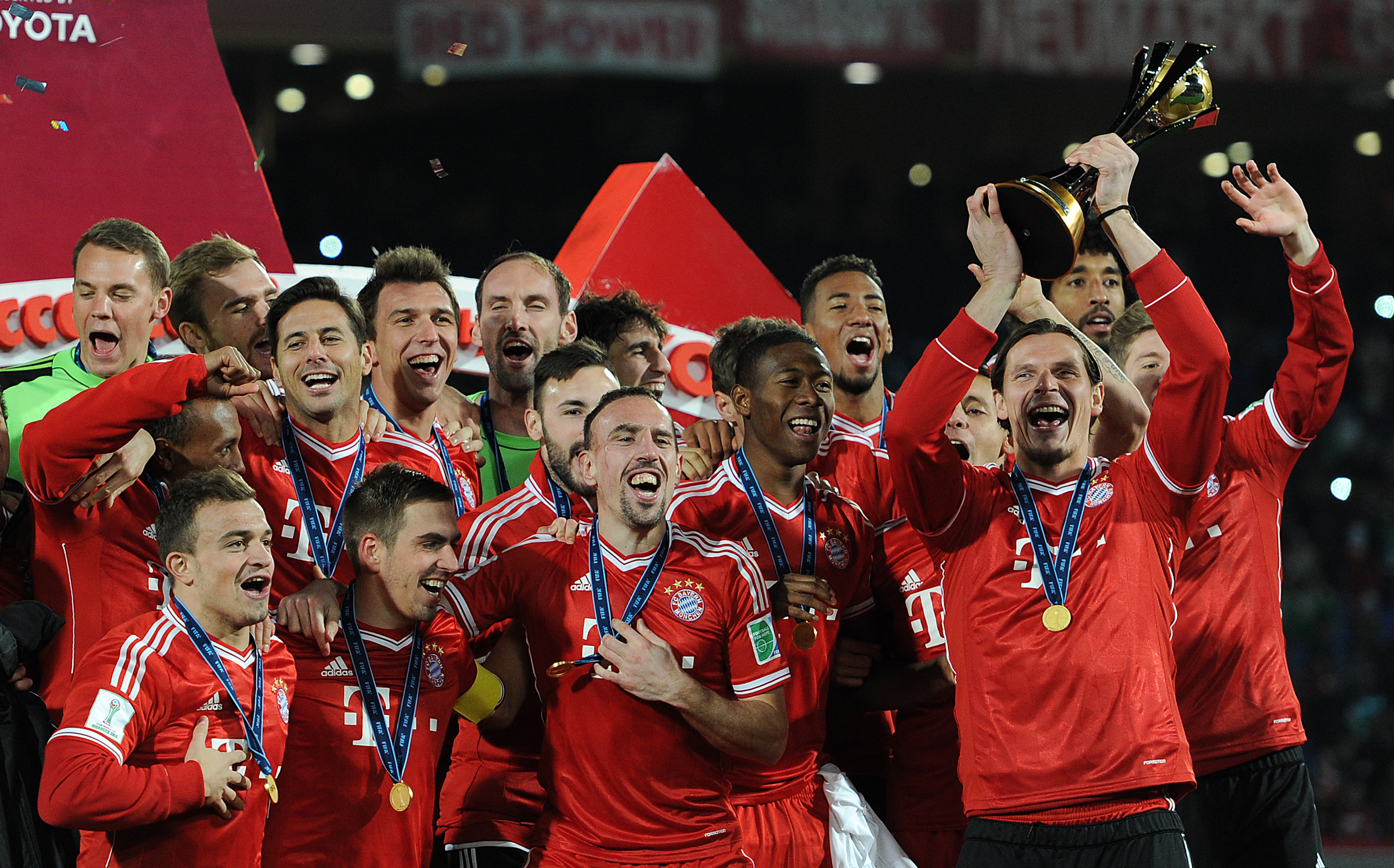
Bayern Munich won the European Cup three times in a row in the 1970s, but the Bavarians declined to take part in the Intercontinental Cup in both 1974 and 1975.
The Bundesliga giants did play in 1976, beating Brazilian side Cruzeiro to take the title. Bayern won it again in 2001, edging out Boca Juniors 1-0 in the final, before claiming the FIFA Club World Cup after their treble-winning seasons in both 2013 and 2020.
AC Milan (1969, 1989, 1990, 2007)
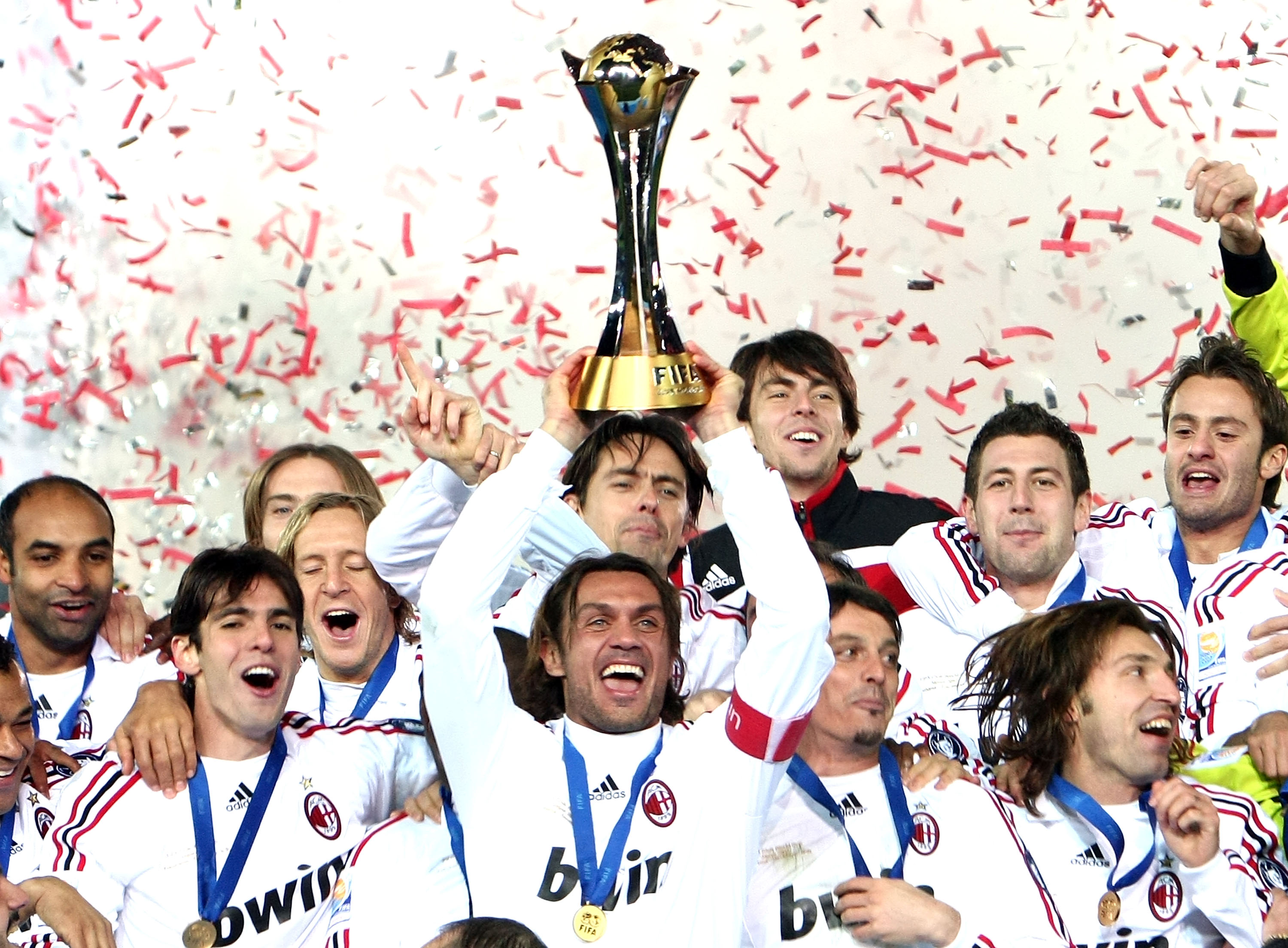
One of five teams to win the Intercontinental Cup three times, AC Milan first won the competition in 1969, beating Argentine side Estudiantes over two legs.
Two decades on, the Rossoneri claimed back-to-back titles in one-off matches against Atlético Nacional and Olimpia, before adding a Club World Cup in 2007 with a 4-2 victory over Boca Juniors.
Real Madrid (1960, 1998, 2002, 2014, 2016, 2017, 2018, 2022, 2024)
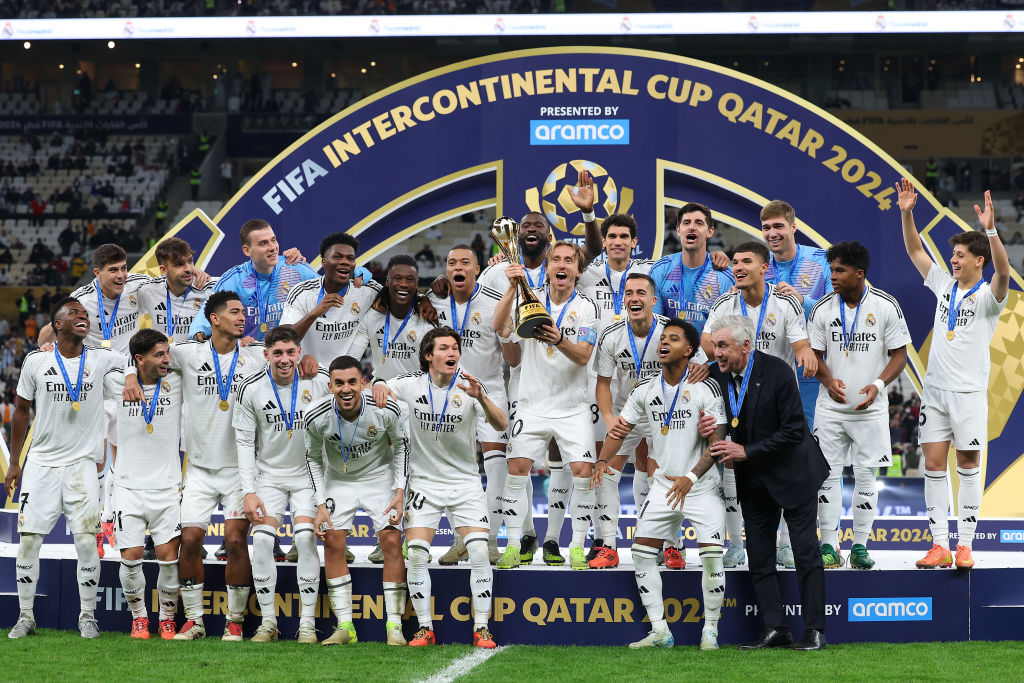
Given Real Madrid's huge success in the Champions League, it is no surprise that Los Blancos have also won a series of Intercontinental and Club World Cups.
The Spanish giants won the first edition of the Intercontinental Cup, beating Uruguayan side Peñarol over two legs in 1960. Madrid added two more Intercontinental Cups, in 1998 and 2002, before winning the Club World Cup in 2014, 2016, 2017, 2018 and 2022 and the FIFA Intercontinental Cup in 2024.

Ben Hayward is a European football writer and Tottenham Hotspur fan with over 15 years’ experience, he has covered games all over the world - including three World Cups, several Champions League finals, Euros, Copa America - and has spent much of that time in Spain. Ben speaks English and Spanish, currently dividing his time between Barcelona and London, covering all the big talking points of the weekend on FFT: he’s also written several list features and interviewed Guglielmo Vicario for the magazine.
